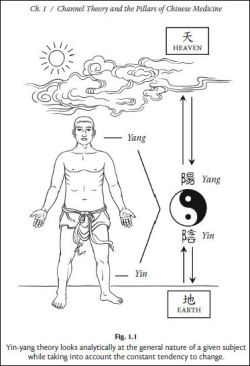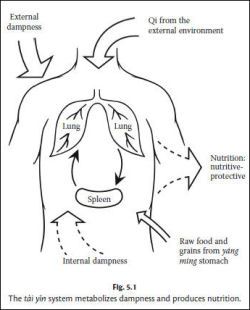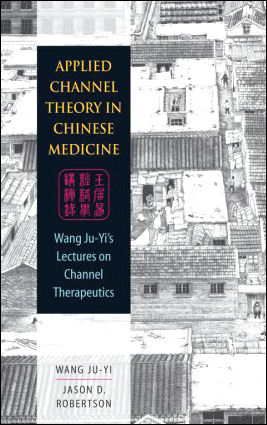Acupuncture and TCM Books
Applied Channel Theory in Chinese Medicine
Wang Ju-Yi's Lectures on Channel Therapeutics
Applied Channel Theory in Chinese Medicine demonstrates how a deeper understanding of the interrelationship between organ and channel theory can lead to more precise diagnoses and better clinical results. This book is a collaboration between Wang Ju-Yi, one of modern China’s most respected scholars, teachers, and practitioners of traditional Chinese medicine, and his American apprentice and practitioner, Jason Robertson.
While most textbooks focus either on the functions of the organs in basic physiology or on the uses of the channels in treatment, this book shows the essential relationships between the two. Theory and practice are connected through a detailed discussion of a channel palpation methodology developed by Dr. Wang, which leads to more precise and effective point selection, location, and technique.
Applied Channel Theory in Chinese Medicine was developed during Mr. Robertson’s apprenticeship with Dr. Wang in Beijing, and is presented in a unique and highly readable format that preserves the intimacy of dialogue between apprentice and teacher, with questions and answers, narratives, and case studies.
CONTENTS
Preface
Introduction
Channel Theory and the Pillars of Chinese Medicine
Fundamentals of Channel Theory
An Introduction to Channel Diagnosis
Basic Questions, Chapter 8
The Tài Yïn (Greater Yin) System
The Shào Yïn (Lesser Yin) System
The Jué Yïn (Terminal Yin) System
The Tài Yáng (Greater Yang) System
The Shào Yáng (Lesser Yang) System
The Yáng Míng (Yang Brightness) System
The Extraordinary Vessels
The Terrain So Far
Physiology Under the Fingertips
Specific Channel Changes
Selecting Channels for Treatment
What is an Acupuncture Point?
Ansport Points
The Source, Cleft, and Collateral Points
A Brief Discussion of Classical Technique
A Modern Perspective on Acupuncture Technique: Seven Steps
Point Pairs
Postscript: The Greatest Walk in Beijing
Appendix 1: Pathways of the Channels
Appendix 2: The Sensory Organs
Appendix 3: Case Studies
Appendix 4: Other Diagnostic Tools: Observation and Palpation of Alternate Pulses
Appendix 5: The Liver and Attention Deficit Hyperactivity Disorder (adhd)
Notes
Point index
General index


 Applied Channel Theory in Chinese Medicine Wang Ju-Yi's Lectures on Channel Therapeutics
Applied Channel Theory in Chinese Medicine Wang Ju-Yi's Lectures on Channel Therapeutics